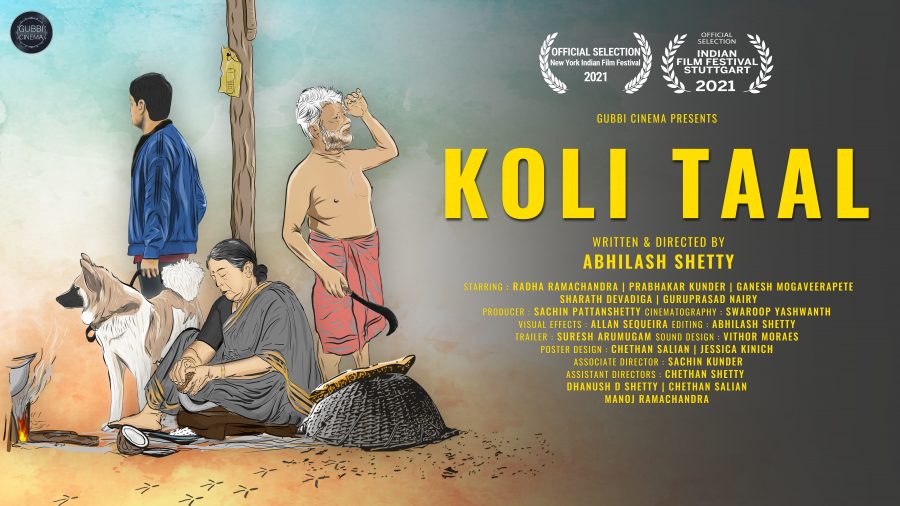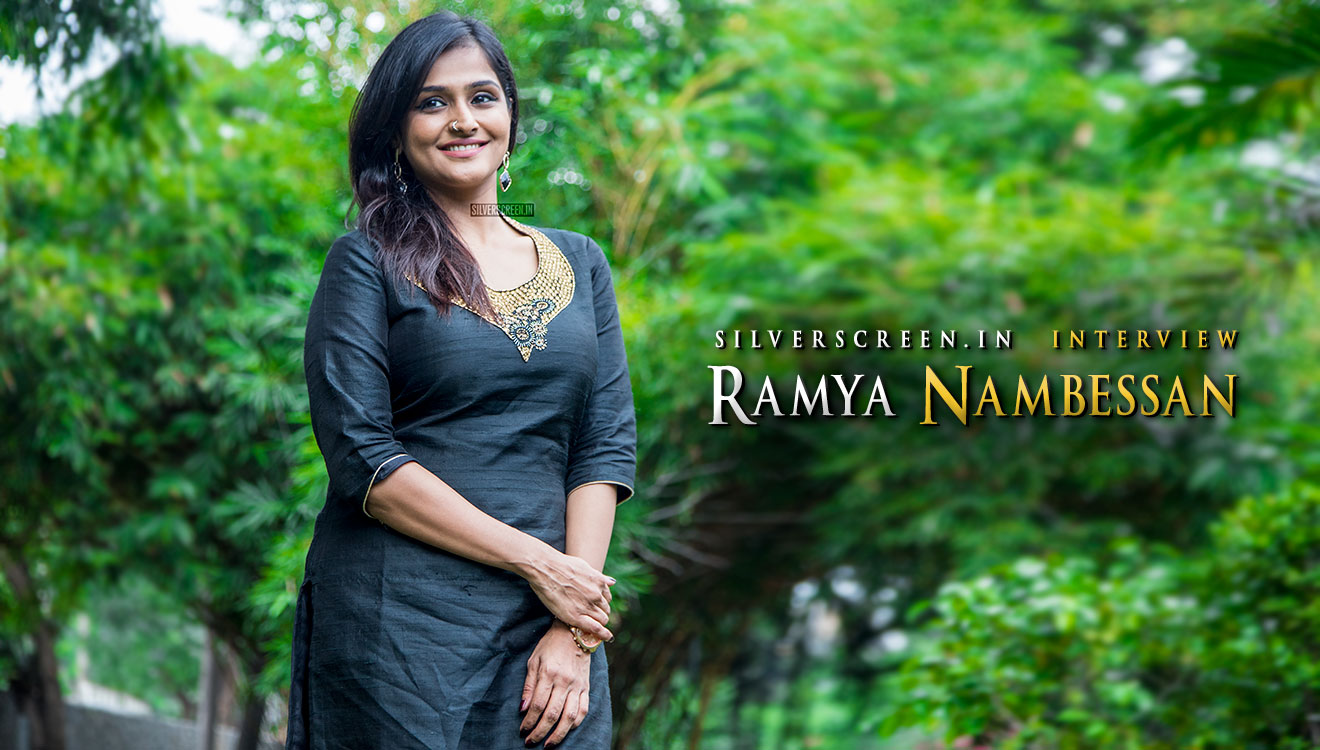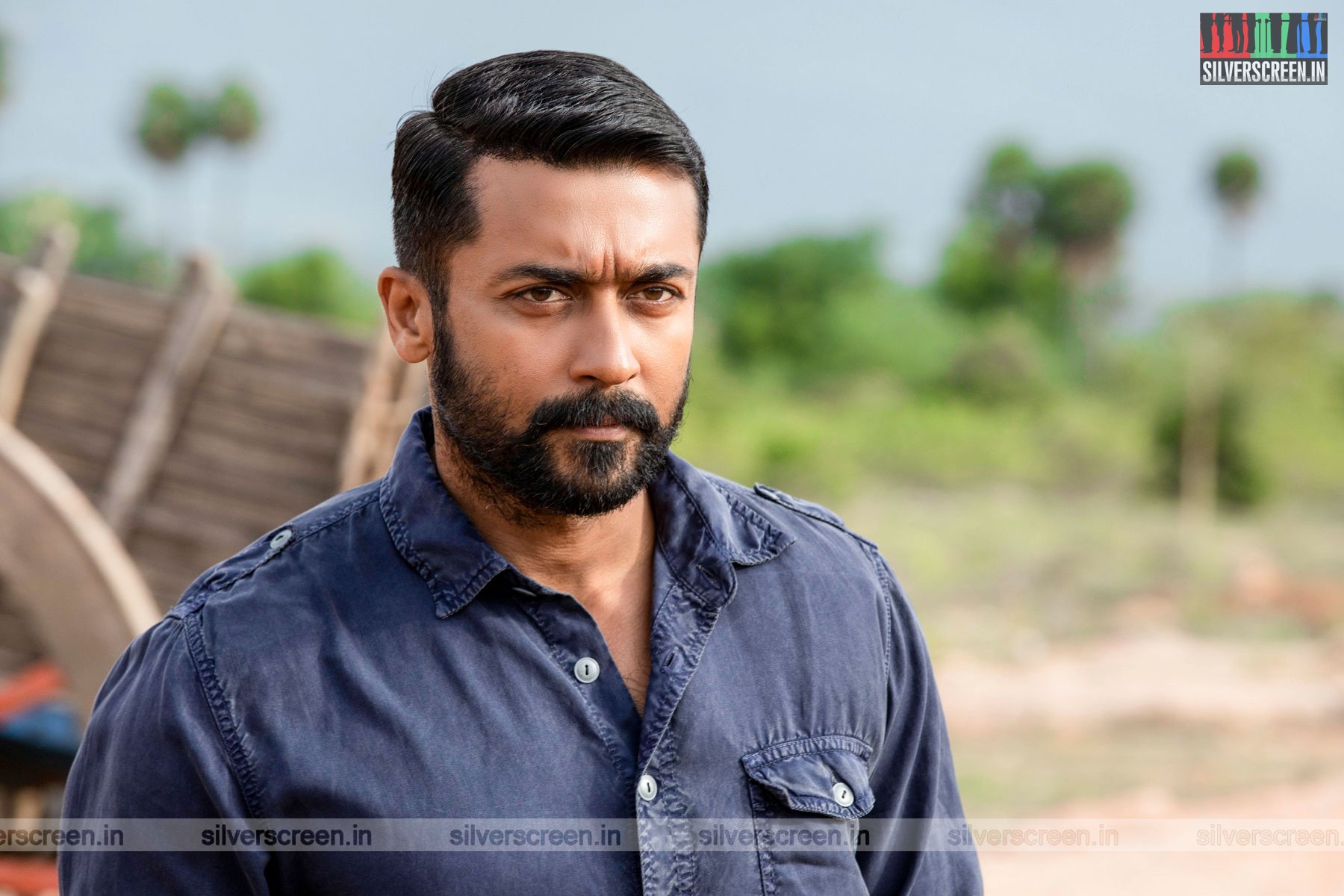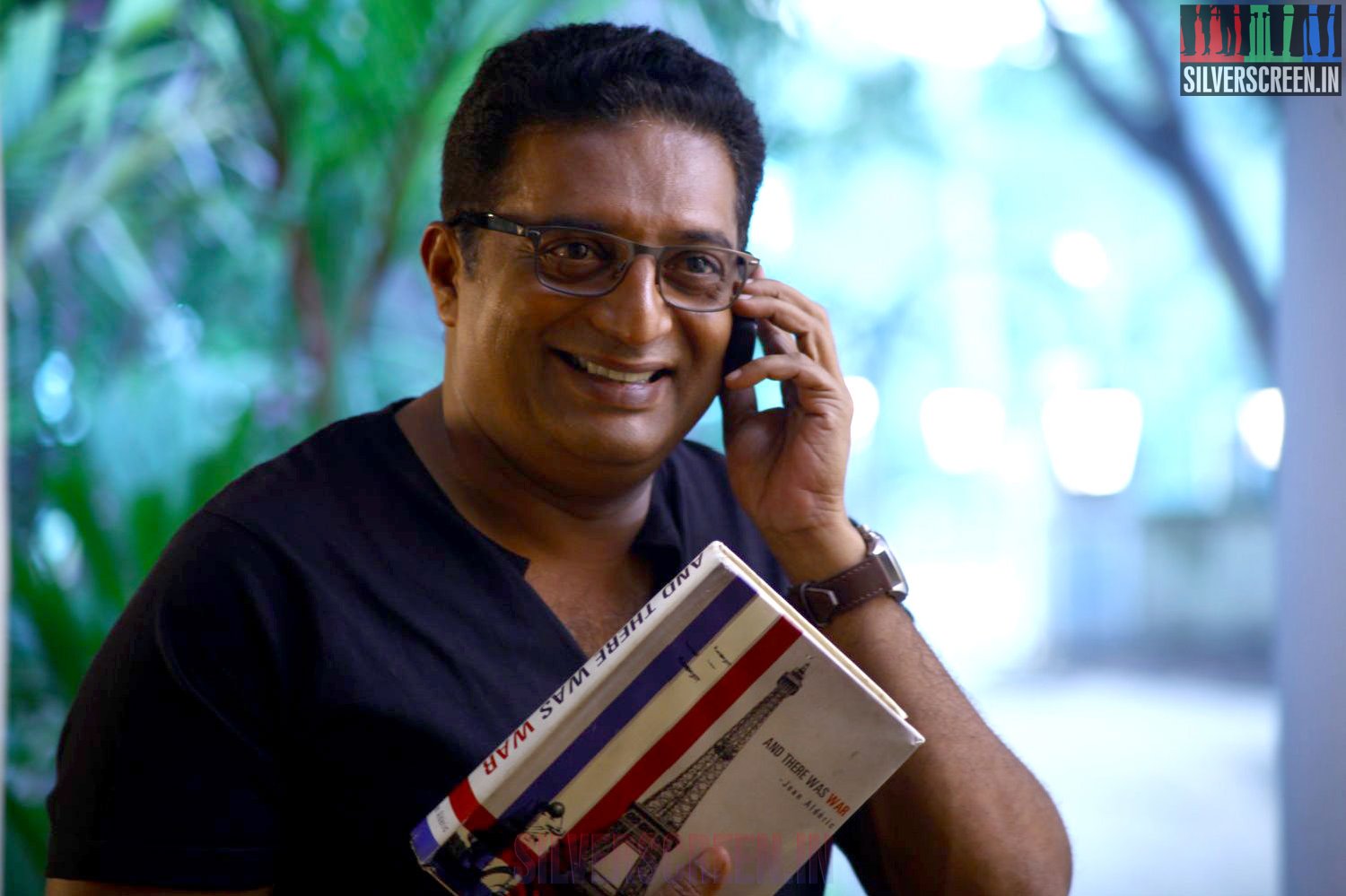Koli Taal, the Kannada feature film written and directed by debutant filmmaker Abhilash Shetty, is set to be screened at the 18th Indian Film Festival Stuttgart, which runs from July 21-25, the director announced on social media on Tuesday.
In conversation with Silverscreen India, Shetty, a self-taught filmmaker who quit his accounting job in 2017 to pursue his filmmaking dreams, says it is a “great validation” for his debut film to get such recognition.
Koli Taal, which translates to Chicken Curry, recently had its world premiere at the New York Indian Film Festival.
The 84-minute film is set against the backdrop of the Western Ghats in Karnataka and follows the lives of an elderly couple who are excited about the arrival of their grandson from New Delhi. As they prepare to cook a chicken curry for dinner, their simple lives get disrupted when the chicken goes missing at the last moment.

Shetty says his maiden feature film is inspired by the realistic approach of Iranian and French New Wave filmmakers and is a replication of his childhood memories. “I studied in a boarding school in Shimoga and we were allowed to go home only twice a year. I used to go to my grandma’s place in Sagara, where they always kept a rooster to make koli taal for me. It’s something of a tradition in the Western Ghats and the coastal regions here [Karnataka] to make the dish during special occasions or when guests come,” he explains.
The filmmaker, whose short films have earlier been screened in over 30 film festivals, decided to make Koli Taal in August 2019. “When it was time to make a feature film, I thought of doing one which is dear to me. This film gave me a chance to show the story, culture, and traditions of a village in the Western Ghats, something we don’t often see in films,” he says.
Shetty started writing the script at his grandmother’s house, where the film was also shot. He was there for three months. “I completed the script by the end of 2019 and we shot for 15 days after that,” he adds.
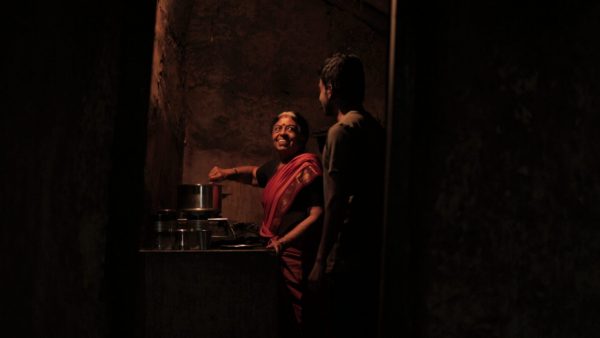
Making an art-house drama
Shetty calls his film an “art-house drama”. Elaborating on this, he says, “I study a lot of world cinema and watch interviews of filmmakers such as Jean-Luc Godard and Majid Majidi. But although I am inspired by them, I wanted to make use of my nativity. I want to make films where characters and the story stand out and make sense.”
“This film is the story of a rooster that goes missing. But mainly, it is about the people who lead these monotonous lives and their way of dealing with things, especially how something as simple as a rooster going missing affects their lives,” he adds.
The filmmaker says every character in the film is based on real people. He goes on to add that it was a conscious decision to choose this path and make an art-house film that is off-beat and realistic.
A film without music
A deliberate choice Shetty made was avoiding melodrama in Koli Taal and one of the ways he did so was by eliminating music in the film. “From the beginning, I thought, let’s not use background score, songs, or any melodramatic elements. Sometimes, the music decides the genre and mood of the film and manipulates it. Even if the acting is not so great, the music covers it up. In fact, it is difficult to present a film without music. I wanted to be ambitious and attempt this in my debut film. Not having music also reflects reality better,” Shetty adds.
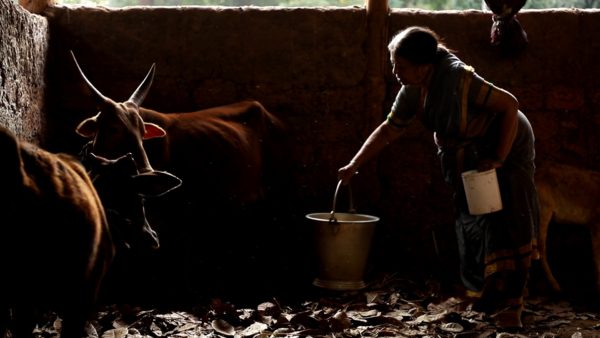
However, the filmmaker clarifies that this does not mean he will never use music. “For this film, I was confident that music was not needed because we shot it in a forest rural area, where there was ample ambient sounds from animals and nature. Those sounds fit this film,” he says, adding that the team put a lot of work into the sound design.
With the help of his assistant directors, Shetty listed about 800 sounds needed for the film. “We recorded every sound. We did not use library sounds. It took about three months to record everything. Once we collected it, we sent it to our sound designer (Brazilian technician Vithor Moraes) who was working remotely. Our budget was mainly spent on post-production,” he adds.
Casting and filming
While Shetty chose his grandparents’ home to film Koli Taal mainly for sentimental reasons, he says it was logistically a good choice as well since their house and livestock could be used in the film helping the team cut back on the budget to procure these.
The filmmaker adds that he did not “create any world or character” for the film, but took whatever was already existing. “We used the livestock which was already there and even showed the mobile network issues they typically face. Even the mannerisms of actors were picked up from my family members. I was merely replicating from memory.”

Koli Taal stars Radha Ramachandra as grandmother Vanaja and Prabhakar Kunder as grandfather Mahabala Shetty. Shetty himself plays the grandson.
“Once I finished the script, I immediately thought Radha would be perfect for the grandmother role. The character is based on my own grandmother, who actually helped Radha with the accent. Later, I approached Prabhakar Kunder, who is from Udupi. I have seen his works and found his acting natural.”
Finding actors to play the workers was tricky, Shetty adds. “I wanted people who looked real. I discussed with Prabhakar and he gave the names of a few workers. All three of them — Ganesh Mogaveerapete (who plays Manja), Sharath Devadiga (Sathisha), and Gurpuprasad Nairy (Haala) — are local to the place and had never faced the camera before.”
The film was shot by Swaroop Yashwanth and Shetty says each shot was meticulously constructed in order to avoid upstaging the normal, simple life. “Before we began filming, I took reference shots of my grandmother while she was doing her chores. It helped a lot,” he adds.
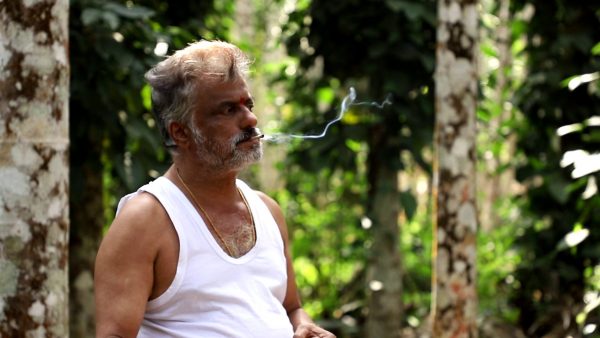
Film festivals, OTT platforms and Kannada indie cinema
Shetty mentions that Koli Taal, after its festival run, will stream on an OTT platform. “We don’t have the budget to distribute in theatres. We have not yet pitched to any platform, but will do so soon.”
The filmmaker feels Kannada cinema is actor-driven, which results in off-beat films not getting good distribution in theatres. “In 1970s-90s, parallel cinema was very active. But nowadays, that is not the case. And unlike content-driven Malayalam films that are received well on OTT platforms, Kannada films do not work that way due to the mindset of people. However, an increasing number of Kannada films are getting represented in film festivals lately and are gaining the spotlight. I think it is a good beginning,” he says.
Shetty concludes by saying that his next project is also set in a village in the Western Ghats, and will have elements of dark comedy, emotions, and drama.
